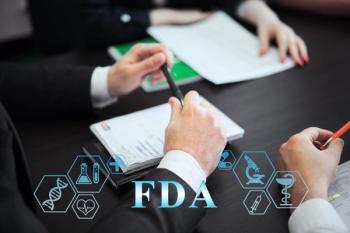
Three Ways Life Sciences Can Educate Stakeholders About Biosimilars
There are several strategies life sciences companies can use to benefit from biosimilars.
As the biosimilars market continues to grow—both in the number of products and therapeutic areas—some analysts expect that these products could help deliver more than
Yet, despite the expected boom of approvals and launches for these products, access to these treatments can often remain a challenge. While there are several well-defined barriers to biosimilar access and utilization, recent research continues to highlight the role education plays in creating clinical confidence among key stakeholders—especially providers, pharmacists, and patients—that ultimately support broader utilization in the market.
While the US government has supported education over the past few years through bills such as the
Here are three educational strategies life sciences companies can deploy in order to reach the right stakeholders, tackle the right topics, and strengthen familiarity and confidence in biosimilars.
Provider marketing
With multiple biosimilars launching in new therapeutic areas, educating providers in each specialty will need to become an integral part of every pharma company’s healthcare provider engagement and marketing strategies.
The specialty of ophthalmology can serve as an example. In July 2022, the first FDA-approved ophthalmology biosimilar was launched in the US market, representing a significant milestone that brings the promise of biosimilars to patients burdened by retinal diseases and conditions.
In this research, we again see the link between lack of education and greater discomfort from a clinical perspective. We believe this is a very solvable barrier for biosimilars and that targeted physician marketing to enhance awareness of the real-word data will be a key tactic as more biosimilars come to market.
While analysts note biosimilar companies may be challenged with budgets (when compared to reference manufacturers), we know biosimilar manufacturers recognize the growing importance of being both biosimilar and “market similar” to the reference manufacturers they compete with. Also worth noting, due to the pandemic, provider marketing is becoming more of an omnichannel strategy, enabling manufacturers to better track data and results of outreach, while also reaching providers by their preferred method of communication.
This drastic divide in preferences among healthcare professionals reveals that a targeted omnichannel marketing approach will be essential to addressing the education gap on biosimilar products.
Medication therapy management programs (MTM)
As more biosimilars enter the market that are primarily managed under the pharmacy benefit, there will be an increased need for retail and specialty pharmacists to better understand these biologic products and also be able to provide effective education to patients. In July 2021, FDA approved the first interchangeable biosimilar: Viatris’ Semglee (insulin glargine-yfgn), referencing the long-acting insulin Lantus. As an interchangeable product, for the first time, pharmacists will be positioned to drive biosimilar substitutions, per state laws. This further empowers retail pharmacists to champion education efforts for patients and caretakers.
However, despite the regulatory enablement to facilitate substitutions, our research shows that less than 20% of retail pharmacists surveyed feel very familiar with the interchangeability designation. Additionally, 71% of pharmacists believe new biosimilar 101 education materials (e.g., a one-page reference) would be a helpful resource to support their conversations with patients.
The fact of the matter is, while pharmacists are being empowered to conduct biosimilar interchanges, they are also looking for support in this area. This is a great opportunity to support pharmacists through delivery of educational programs already embedded into their pharmacy workflow, like MTM programs, again leveraging omnichannel partners as noted earlier. As technology advances, these programs can augment pharmacists’ ability to provide real-time education to patients on a variety of topics, including biosimilars, in a consumable manner, to help ensure optimal patient outcomes. More so, while not applicable to all, the life sciences industry must remember that as pharmacists increase delivery of clinical interventions, financial terms must be aligned to provide compensation for these efforts and expertise as the industry expands.
Patient access and support programs
With pharma companies spending
Patient support programs often serve three main areas:
- Reimbursement
- Financial assistance
- Education/training support
Reference products and biosimilars are both biologic products that are complex and can be confusing to patients who haven’t been treated with them before. Therefore, it is essential that both reference biologics and biosimilars meet patient needs at the same level. This goes back to the idea of being as “market similar” as possible.
As a new class of products, biosimilars may get more questions from patients and providers about their efficacy and safety, creating heightened significance to hub services and product support offerings. For example, patient hubs, which often focus on personalizing messaging for patients, can help better communicate the importance and quality of these products to patients, tailoring communication strategies to individual learner types, as well as help navigate the complex managed-care coverage landscape.
As market research continues to reveal, there is an essential link between biosimilar education, clinical comfort, and adoption in this space. Targeting and tailoring provider education, leveraging existing platforms to activate and expand education efforts through retail pharmacies, and ensuring patient experiences are optimal through hub services, are just three examples that can support biosimilar adoption efforts in the US. In order to realize the projected savings estimates from biosimilars in the coming years, first and foremost, there must be clinical confidence in these agents. Educational efforts that are proactive, multistakeholder, and multichannel are paramount to establishing a healthy, competitive market for biologics and enabling expanded benefits for patients through broader access to and affordability of life-saving medications.
For more information about the state of biosimilars in the US, please check out the
Authors
Sonia T. Oskouei is vice president of biosimilars and Jeff Baldetti is director of biosimilars at Cardinal Health.
Newsletter
Lead with insight with the Pharmaceutical Executive newsletter, featuring strategic analysis, leadership trends, and market intelligence for biopharma decision-makers.




